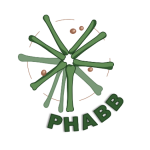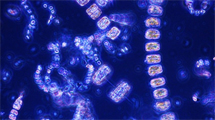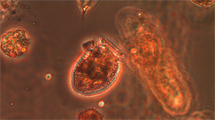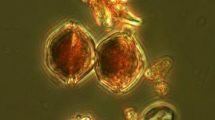Vefsíða verkefnisins: https://mcam.mnhn.fr/en/about-phabb-pathogens-algae-biocontrol-and-biosecurity-6679
Hér að neða má lesa meira um verkefnið en sá texti er á ensku:
Over Two million euros for research on using pathogens as biocontrol agents of harmful algae
We are pleased to announce the start of the Marie Curie Doctoral Network ‘Pathogens of Algae for Biosecurity and Biocontrol (PHABB) in January 2024. This project is funded by the European Union and UK Research & Innovation for a total sum of 2.8 million euro for four years, and coordinated by the Muséum National d'Histoire Naturelle in Paris and the University of Aberdeen in the UK. It connects academic partners and SMEs from Austria, France, Germany, Iceland, Italy, Scotland, Spain, Portugal and The Netherlands.
Harmful algae form a major threat for drinking water supply and aquaculture, and the burgeoning seaweed aquaculture is plagued by poorly-known diseases. PHABB foresees the recruitment and interdisciplinary training of 10 PhD students towards designing novel and sustainable solutions for biocontrol of harmful algae by understanding their pathogens. To achieve this, it will tackle the biological and evolutionary processes linked to microbial community dynamics, virulence and host specificity of pathogens that target desirable or harmful algae in freshwater and marine environments. This new knowledge will be applied towards developing and implementing novel, durable biosecurity and disease control strategies that support natural ecosystems and allow for a reduced use in chemical pesticides.
List of partners:
MUSEUM NATIONAL D’HISTOIRE NATURELLE, FRANCE
THE UNIVERSITY OF ABERDEEN, UNITED KINGDOM
CONSEJO SUPERIOR DE INVESTIGACIONES CIENTIFICAS, SPAIN
FORSCHUNGSVERBUND BERLIN eV, GERMANY
KONINKLIJKE NEDERLANDSE AKADEMIE VAN WETENSCHAPPEN, NETHERLANDS
CENTRE NATIONAL DE LA RECHERCHE SCIENTIFIQUE, FRANCE
UNIVERSITA DELLA TUSCIA, ITALY
UNIVERSITAET INNSBRUCK, AUSTRIA
UNIVERSITY OF AKUREYRI, ICELAND
UNIVERSITY OF AMSTERDAM, NETHERLANDS
OTAQ, UNITED KINGDOM
LANGENOMICS BIODETECT SL, SPAIN
BIOPOL EHF, ICELAND
WATER INSIGHT BV, NETHERLANDS
IAGE, FRANCE
PARITY QC, AUSTRIA
ALGAPLUS, PORTUGAL
HORTIMARE BV, NETHERLANDS
SORBONNE UNIVERISTE, FRANCE
UNIVERSIDAD INTERNATIONAL MENENDEZ PELAYO, SPAIN










